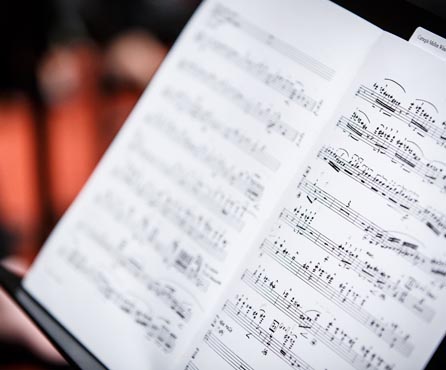By Robert Croan
I’ve always admired British author and fellow music critic Norman Lebrecht. He’s always been controversial because he’s smart, knowledgeable and unafraid to expose the big business interests that control today’s classical music scene and too often trump artistic integrity in favor of the almighty Dollar (or Pound, or Euro, as the case may be). His books “The Maestro Myth” (1991) and “Who Killed Classical Music?” (1996) incurred the ire of management and boards on two continents, but he has also authored a “Companion to 20th-Century Music,” a handy reference work for laymen and trained musicians alike. He has also written guest articles on the symphony orchestra for the Post-Gazette.
Mr. Lebrecht’s latest book, “Why Mahler? How One Man and 10 Symphonies Changed the World” – which I have not yet read – was the basis of a provocative lecture Nov. 9 in Carnegie Mellon’s Fine Arts Auditorium. Here there was no tirade against the commercial establishment, rather an hour-long love song from the author to mark the 150th anniversary of Mahler’s birth. Most of the audience were Mahler fans to begin with, so there was little controversy on that score. There was, however a lot of room for argument about some of Mr. Lebrecht’s premises: notably (simplifying somewhat) that Mahler was the first composer after Beethoven to incorporate awareness of nature, social issues and even infant mortality into the fabric of his symphonies.
You’ll have to read the book to get the details. When I started going to the Symphony, Mahler was a fringe composer, whose works were rarities on orchestra programs. Leonard Bernstein, with live performances and an integral recording when he was the New York Philharmonic’s music director, brought Mahler into the American mainstream, and now every conductor – capable or otherwise – wants to try his hand at the very difficult works.
Personally, I’ve never been convinced. I confess that Mahler misses me. I can appreciate the high intellect, extraordinary musicality and sheer opulence of Mahler’s music, but with the exception of some of his songs, I’ve never been able to enjoy it. I find Mahler’s symphonies overlong and overwritten, too much for my psyche and attention span.
But Mr. Lebrecht, a dynamic speaker who knows the literature inside and out, makes a very persuasive case for his premises. I may not always agree, but I would want to read anything he writes. He is a brave and brilliant musical thinker who makes me proud to be part of the critical profession.
To view the original article. Click Here.
